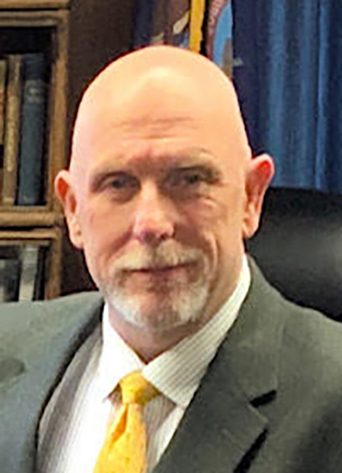
by Art Joslin, J.D., D.M.A.
On November 30, 2021, 15-year old Ethan Crumbley walked into Oxford High School and began his shooting spree. Four children died while seven were wounded, including one teacher.
Oxford High School is in Oakland County, MI and is located northeast of Detroit. At the Network, we’ve received member emails asking how a prosecutor can hold parents responsible with criminal charges for the actions of their minor children. In this edition of the eJournal, I will address the process by which this can happen.
First, let’s look at some historical information that will give us a better idea of where our current laws came from. Parental responsibility laws are well-over 100 years old. In fact, one of the first times parental responsibility is proposed was in the year 1690 when John Locke published his Second Treatise of Civil Government. Locke wrote, in part, “… all parents were, by the law of nature, under an obligation to preserve, nourish, and educate the children they had begotten…This is that which puts the authority into the parents’ hands to govern the minority of their children.” Notice the year – 1690, 97 years before our own Constitution was ratified. Researching the time of Locke, this idea of a right and obligation of parental responsibility in the upbringing of children was a part of common law at the time.
In 1925, the United States Supreme Court, in Pierce v Society of Sisters, 268 US 510 (1925), upheld the right of parents to decide the mode of education for their minor children. Essentially, the Court held that although a state (OR, in this case) has the authority to ensure children are educated, parents have the liberty to decide the manner in which their children are educated. The Court stated “Under the doctrine of Meyer v. Nebraska, 262 U. S. 390, we think it entirely plain that the Act of 1922 unreasonably interferes with the liberty of parents and guardians to direct the upbringing and education of children under their control: as often heretofore pointed out, rights guaranteed by the Constitution may not be abridged by legislation which has no reasonable relation to some purpose within the competency of the State. The fundamental theory of liberty upon which all governments in this Union repose excludes any general power of the State to standardize its children by forcing them to accept instruction from public teachers only. The child is not the mere creature of the State; those who nurture him and direct his destiny have the right, coupled with the high duty, to recognize and prepare him for additional obligations.” The Court seems to agree with Locke.
Then in 1972, WI brought criminal charges against parents who refused to send their minor children to public school based on their conservative Amish religious beliefs under the protection of the First Amendment. The Court in Wisconsin v Yoder, 406 U.S. 205 (1972), held “[the] individual’s interests in the free exercise of religion under the First Amendment outweighed the State’s interests in compelling school attendance beyond the eighth grade.” Unfortunately, however, parental rights are being trampled on as new laws are enacted while community and societal activism increases, especially in our public schools.
All 50 states have laws in place to hold parents responsible for their minor child’s action to some degree. These Parental Responsibility Laws have been expanded to include the more specific Child-Access Prevention (CAP) laws. CAP laws allow prosecutors to levy charges against parents, or any adult, who intentionally or even carelessly allow children access to firearms unsupervised. The general purpose of CAP laws, according to the state legislatures who enact them, is to prevent unintentional shootings, suicides, especially with minor children, and generally decrease gun-crime rates by making the access and/or theft of firearms much more difficult.
My research found 29 states plus the District of Columbia have CAP laws in place as of January 1, 2020. In researching further, few of these jurisdictions have CAP laws that are similar to each other. For example, MA imposes criminal liability if a firearm is not securely locked and imposes this liability even if a minor child “might” have access. The statute (Mass. Gen. Laws Ch. 140, § 131L) imposes a penalty of up to 1-1/2 years in prison plus fines. Other states, like MI, don’t have specific laws on the books pertaining to safe storage but have laws that address firearm negligence and responsible use. A few jurisdictions hold the adult criminally liable even when they should have reasonably known access is “likely” (CA, MN, NY, and DC).
Overshadowing the CAP laws are states that have defined a “minor” child as it pertains to these laws. For example, in 16 states and the District of Columbia, a minor is under 18. TX defines a minor as under age 17. FL, HI, MD, NH, NJ, and RI define a minor as under the age of 16, while IL, IA, VA, and WI define a minor as under age 14. Keep in mind these definitions of a minor are for these specific CAP laws.
Now that we have a general understanding of how these laws work, let’s take a look at a few specific cases and then turn to the Oxford, MI school shooting
In May 2012, a Marysville, WA police officer was charged with second-degree manslaughter in the shooting death of his 7-year-old daughter when her younger brother had access to an unsecured gun in the family vehicle. Derek Carlile and his wife left their four children, ages 1-7, in the family van while they made a quick stop on the way to a wedding. Their 3-year-old son accessed the gun and shot and killed his 7-year-old sister.
Carlile was dismissed from his job for negligent actions but was reinstated after a jury was unable to reach a verdict in his criminal trial. The prosecutor said Carlile “[F]ailed to heed or be aware of a substantial risk that death would occur when he placed and left his loaded, unsecured revolver in an enclosed van with four children inside.”
A central FL father was arrested and charged with negligent manslaughter and unsafe storage of a firearm when his 2-year-old was able to access an unsecured and loaded firearm from a backpack and fire a fatal shot at his mother while she was on a work Zoom conference call. On October 8, 2021, charges were levied against the father, Veondre Avery, the gun owner, and filed with the Seminole County, FL clerk’s office. No word yet as to a trial date.
In Shelby County, AL, a 3-year-old found an off-duty police officer’s handgun and fatally shot his 6-year-old sister. The prosecutor stated they found no criminal negligence and did not expect to bring charges against the gun owner.
These are examples of how different jurisdictions treat these incidents and the vast differences in laws from state to state.
Michigan does not have any laws that specifically address the storage of firearms. Statutes in MI address acts of negligence, endangering a child or contributing to the delinquency of a minor and other related crimes.
So how can the prosecutor in Oakland County, MI charge the parents of 15-year-old Ethan Crumbley with two counts each of manslaughter for the acts of the minor child? We go back to the aforementioned CAP laws, and Parental Responsibility laws.
Parents are responsible for the actions of their minor children. Parents have rights and responsibilities in the raising of their children, feeding them, educating them and even making sure they are properly clothed (I won’t discuss my childhood and those awful white patent leather shoes).
Prosecutors will bring criminal charges against a person or persons for a variety of reasons. Sometimes they overcharge knowing some charges will be dropped during a plea agreement. This is used as a negotiating tool. Other times they bring only those charges they can prove and have at least some modicum of evidence to prove the charges. And yet, as we saw in the Rittenhouse trial, prosecutors can push the lines of professional ethics and bring charges that are politically motivated.
Karen McDonald, Oakland County, MI prosecutor stated, “I want to be really clear that these charges are intended to hold the individuals who contributed to this tragedy accountable.” That is the key in this case: did the parents materially contribute to their son carrying out this crime? She says yes; defense attorneys for the Crumbleys say no.
In MI, involuntary manslaughter is a felony that carries a maximum 15-year state prison sentence. MI recognizes two types of manslaughter, voluntary and involuntary. Voluntary manslaughter is charged when a person commits a murder of passion. The typical law school example is when a person comes home to find their significant other in bed with another person and kills one or both in outrage. Involuntary manslaughter is usually charged when the killing is unintentional and without malice (intent to kill).
A person is guilty of involuntary manslaughter when a prosecutor can prove these elements beyond a reasonable doubt:
- First, that the individual caused the death of the victim, that is, that the victim died as a result of the individual’s act.
- Second, in doing the act that caused the victim’s death, the individual acted in a grossly negligent manner OR in doing the act that caused the victim’s death, the individual intended to injure the victim. For example, an individual who commits assault and battery with the intent to inflict injury but instead causes an unintended death, then this amounts to, at least, involuntary manslaughter.
- Third, that the individual caused the death without lawful excuse or justification.
Looking at the first element, the prosecutor may fail in proving the element of causing the death of the victim. The parents did not cause the death of the victim; at least not directly. However, in element two, can the prosecutor prove the parents acted in a grossly negligent manner (a duty must exist to prove gross negligence and a parent has a duty to their children)? Keep in mind, to bring a conviction for any criminal act, each and every element must be proven, by the prosecutor, beyond a reasonable doubt.
This is a tragic event. Children have lost their lives; parents have lost children: siblings have lost siblings. It is heart-wrenching to imagine the pain and suffering of the loss of a child. Certainly, Ethan Crumbley should be held accountable to the fullest extent of the law, but will McDonald be able to prove all elements in this case against the parents? Unfortunately, this is also a politically-charged case with national and international attention. A 100 million-dollar civil suit has already been filed against Oxford Public Schools by none other than famed attorney Geoffrey Fieger (think Dr. Jack Kevorkian).
In an on-going case like this one, we only really have speculation and press releases. The facts will come out as evidence is collected, interviews and statements are taken, and hearings play out. Remember, Prosecutor McDonald would most likely commit political suicide if these charges are pled down; she is an elected official. MI Attorney General Dana Nessel has stated her office will conduct a review of the case even though Oxford Schools has refused any assistance from the AG’s office stating they want a third-party review. Nessel says they will review it anyway. She, too, is elected.
As to my opinion? My thoughts are the involuntary manslaughter charges will either go away and be pled down or a jury will not convict on involuntary manslaughter and bring back a verdict on a charge of gross negligence or some other charge(s). I may be wrong; I’ve been wrong before. Let’s watch this play out and learn together.
__________
Questions or comments? Contact the author at
To read more of this month's journal, please click here.
